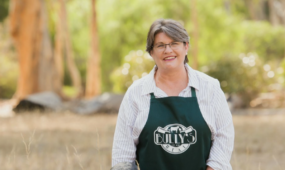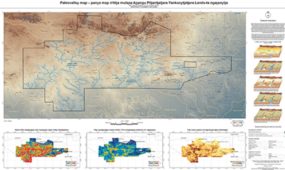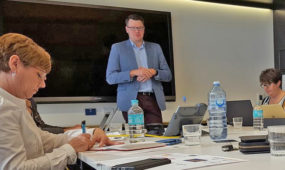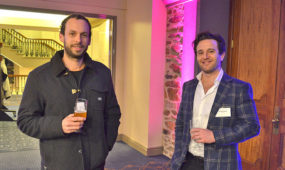Ageing 2.0 drives new ideas for healthy living
Ideas
The Internet of Things is providing opportunities for new products to monitor the health and wellbeing of the world’s ageing population, a forward-thinking forum has heard.

Sign up to receive notifications about new stories in this category.
Thank you for subscribing to story notifications.
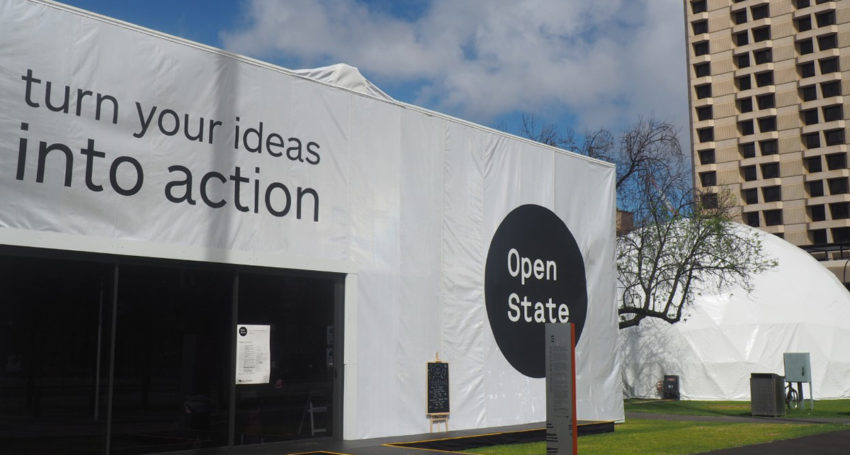
Kettles that track elderly people’s everyday habits, baby food for adults and supermarkets for people aged over 65 were just a few examples of future aged care design sprouted at a recent panel discussion in South Australia’s capital Adelaide.
A movement known as Ageing 2.0 aims to bring together technology and design innovators to help improve the quality of life for the world’s ageing population.
English futurist Richard Watson headlined the “Future of Ageing Well” panel, which addressed key areas for technological development in the aged care sector.
The panel formed part of this month’s Open State ideas forum and gave audiences a taste of what to expect at next month’s Ageing Well conference in Adelaide, which will bring together experts from around the globe to discuss the future of the aged care service industry.
“We think of ageing as a problem and I don’t see it as a problem. I see it as a series of opportunities, particularly economic opportunities,” Watson told the Open State forum.
“If you think about kettles, you could integrate a level of intelligence that knows when an elderly person living alone normally picks it up and recognises its pattern of use.
“If the kettle hasn’t been picked up one morning it could send a message to a neighbour asking them to check up on their neighbour to see if he was OK.”
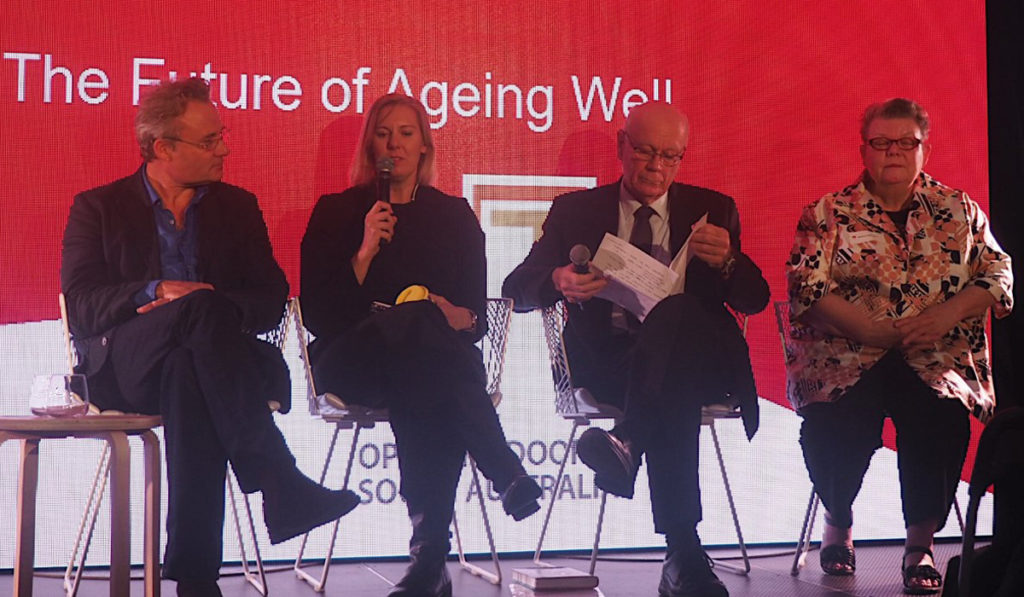
Watson, above left, said businesses had a lot to gain from designing products to meet the needs of older consumers, especially as the Baby Boomer generation reached retirement.
“We’re not looking for rocket science here,” he said.
“Just a subtle redesign of everyday living to meet aged care needs will reap the benefits.
“The key thing is about getting under the skin of these demographics and involving them in the design process.”
Fellow panellist and CEO of aged care support service ACH Group Mike Rungie said misconceptions about the aged care industry needed to change.
“We don’t need more lifting machines, surveillance technology or more nursing homes. What we need are the kinds of products and services that enable us to live the life stage we’re in if we’re a bit more disabled than we were when we were 20,” he said.
“I would certainly say to everyone, keep an eye on Ageing 2.0, it’s an international movement around innovation, start-ups and entrepreneurs, and that’s where the change is going to be driven.”
The South Australian Government earlier this year announced AUD$4 million in funding to develop the Health Ageing Project into future aged care services.
Led by the South Australian Academic Health Science and Translation Centre (SA Centre), the research consortium will seek to attract manufacturers to develop medical devices, health software, and mobile sensor applications for aged care.
The consortium will also develop a national-first registry to gather data about individuals and streamline information across service providers, industry, researchers and policy makers.
South Australia has the highest proportion of older people on mainland Australia, with almost one third of its population aged over 50.
It’s also the destination of choice for retirees, topping the list for most popular retirement regions in Australia according to data released last month by consultancy firm CoreLogic.
Open State’s purpose is to connect global and local leaders with South Australians, to explore new opportunities and address our state’s challenges together.
Last year Open State attracted over 25,000 attendances at over 60 events. Importantly, it brought people together.
Jump to next article
